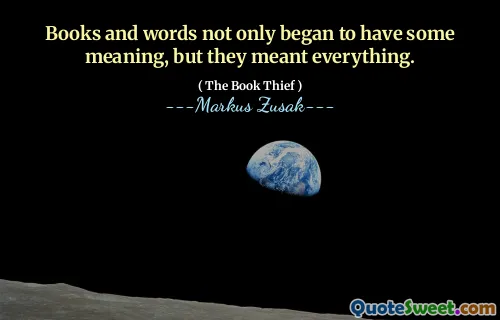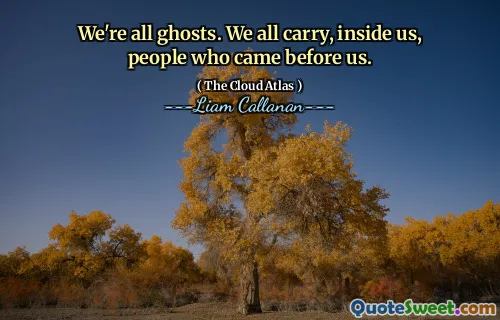
A last note from your narrator: I am haunted by humans.
This haunting declaration by the narrator resonates deeply within the context of Markus Zusak's The Book Thief. It offers a profound reflection on the duality of human nature—the capacity for both great kindness and terrible cruelty. The narrator, often personified as Death, observes humanity from an almost omniscient perspective, bearing witness to the suffering and compassion that define human existence. The idea that the narrator is haunted by humans suggests a burden of witnessing not just individual acts but the collective human condition, with all its contradictions.
The quote evokes contemplation about the pervasive presence of human flaws—the greed, malice, and despair that often overshadow moments of grace and love. Yet, it also subtly acknowledges the beauty and resilience inherent in humanity. By framing this as a haunting, Zusak underlines the weight of empathy and understanding required to truly grasp human nature. It invites readers to reflect on their own actions and the collective impact of humanity’s choices.
Moreover, the phrase can imply an ongoing conflict within the narrator—a sense of empathy mixed with despair—highlighting how the stories of humans leave an indelible mark. It stirs a recognition that narrators, or by extension, anyone who observes life, cannot remain untouched by the complexity of human experience. This layered perspective invites introspection about whether such hauntings are burdens or lessons. The quote ultimately underscores the idea that humanity’s profound beauty is inseparably linked to its darker shadows, making the story of life both poignant and compelling.
In a wider sense, it reflects on how storytellers and observers carry the weight of human history, memories, and emotions, forever haunted by the truths they uncover about ourselves. This haunting isn’t just a confession but a reminder of our shared vulnerability and the enduring need for compassion amid chaos.











